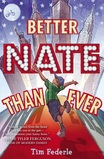
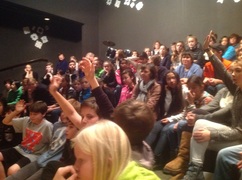
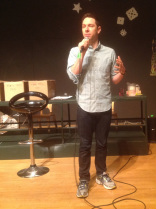
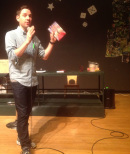
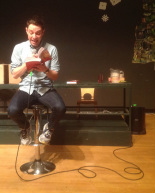
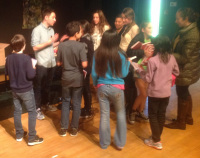
 Tim Federle, author of Better Nate Than Ever and Five, Six, Seven, Nate talked to the 5th and 6th grade on Wednesday. We were excited to hear about his books, his experiences on Broadway, and his advice for a successful career.  Students were eager to share their dreams with Tim and he noticed that MCDS students are not afraid to dream big! We had future fashion designers, sports stars, authors, actors, and entrepreneurs. Tim also acknowledged the students who haven't quite made up their mind yet. He then let us in on a secret he learned when he first decided to be an author: it's okay to change your dream!  Tim asked students to share their writing difficulties with the group. We had a lot of brave students who listed everything from learning differences to adding the right amount of detail. Tim shared his own writing difficulties as well and reminded students that a rough draft can always be polished and not to be afraid to start over. We also had a lot of students that were confident writers. They shared the ideas behind books they're working on right now!  Tim asked everyone to share their natural talents. There was a wide range of responses from gymnastics to engineering. He reminded us that without hard work natural talent can only take you so far. If you have a natural talent you should actually work twice as hard to make sure that you're the best you can be.  Tim read a passage from Better Nate Than Ever about auditioning. He shared his own experiences both as someone auditioning for a role and as a choreographer watching young dancers audition. He shared the three things that make you stand out on Broadway: perseverance, optimism, and being supportive of others. He suggested that students practice in suboptimal conditions. He reminded us that it takes a lot of no's to get to a yes. Finally, he told us a story illustrating the importance of being kind to everyone you meet.  Some students had more questions to ask Tim after the assembly was over. We all enjoyed his visit and engaging, interactive presentation. We'll remember Tim's message to work hard, persevere, and be kind. 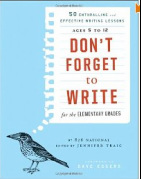 50 enthralling and effective writing lessons age 5 to 12 including one by our own former reading teacher Meg Adler on "Creating a Guide to Modern Girlhood." The entry on Magic Realism suggests "What if sneezes brought good luck? What if you wrote about it?" Picture book writer Jon Scieszka imparts how he gets his ideas. Science teachers don't miss the link to Daniel Radcliffe of Harry Potter fame singing the Periodic Table in chapter 37. Don't Forget to Write by 826 National, editor Jennifer Traig. 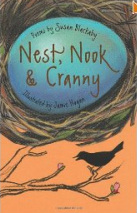 This little jewel of a book will interest naturalists and teachers of poetry alike. Animal poems arranged by habitat delight the eye and ear. The second half of the book explores the different poetic forms used for each animal. For example the hawk entry uses a form called a triolet because "it combines rhymes and repeated lines in a pattern that nicely matches the movement of a circling hawk." Nest, Nook & Cranny poems by Susan Blackaby 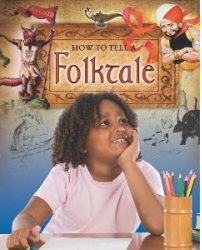 How to Tell a Folktale by Carol Alexander is an amazing "how-to" for writing different types of folk tales including tall tales, trickster tales, pourquoi tales and more. This a very practical book with step by step instruction and wonderful examples covering such elements as dialogue and dialect, setting, plot, theme, and creative responses. If your curriculum covers writing fables, myths or legends, let me know. I will be ordering those titles in this useful series. 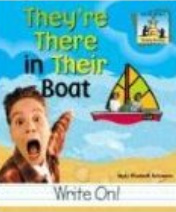 Oh those pesky homophones! Do you know there are college students who misuse these three words? They should have read They're There in Their Boat by Mary Salzmann. These three titles by Ann Heinrichs demystify the mechanics of grammar and its usage in a lively and humorous manner.
|
Categories
All
Archives
May 2024
|